|
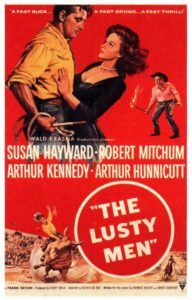
Synopsis:
Retired rodeo star Jeff McCloud (Robert Mitchum) helps train his ranch-hand co-worker, Wes (Arthur Kennedy), to compete for big money. Meanwhile, Wes’s wife (Susan Hayward) tries to prevent her husband from getting hurt and ending up a “rodeo bum” like McCloud.
|
|
Genres, Themes, Actors, and Directors:
- Arthur Kennedy Films
- Has-Beens
- Marital Problems
- Masculinity
- Nicholas Ray Films
- Robert Mitchum Films
- Rodeo
- Susan Hayward Films
Response to Peary’s Review:
Peary writes that “if you never liked films about the race-car circuit, you probably won’t think much of Nicholas Ray’s vision of the rodeo circuit because it, too, is populated by men who want to prove they are MEN”. However, as Peary notes, the storyline is equally concerned with the riders’ “wives who silently suffer while their men are corrupted by money, alcohol, and wild women.” The film is most effective at portraying the inevitable tensions which can emerge in a marriage when personal dreams clash with mutual goals; Peary points out that “as in many Ray films, tension continually builds without a release, until the time is right for a violent outburst.” While “predictable” at times, The Lusty Men benefits from a “strong cast, good rodeo atmosphere, an excellent script, and strong direction.”
Redeeming Qualities and Moments:
- Arthur Kennedy as Wes Merritt
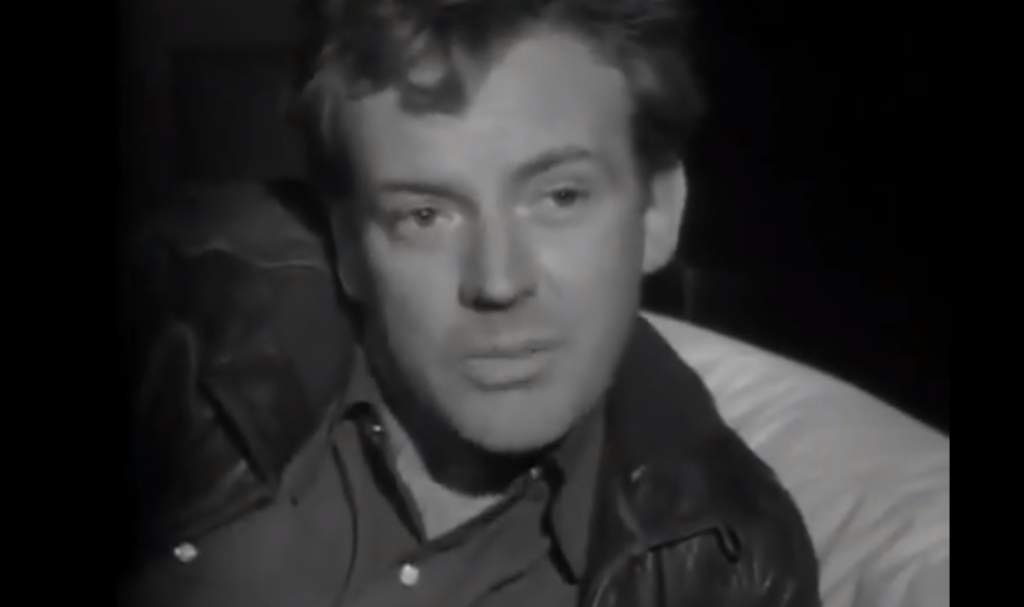
- Robert Mitchum as Jeff McCloud
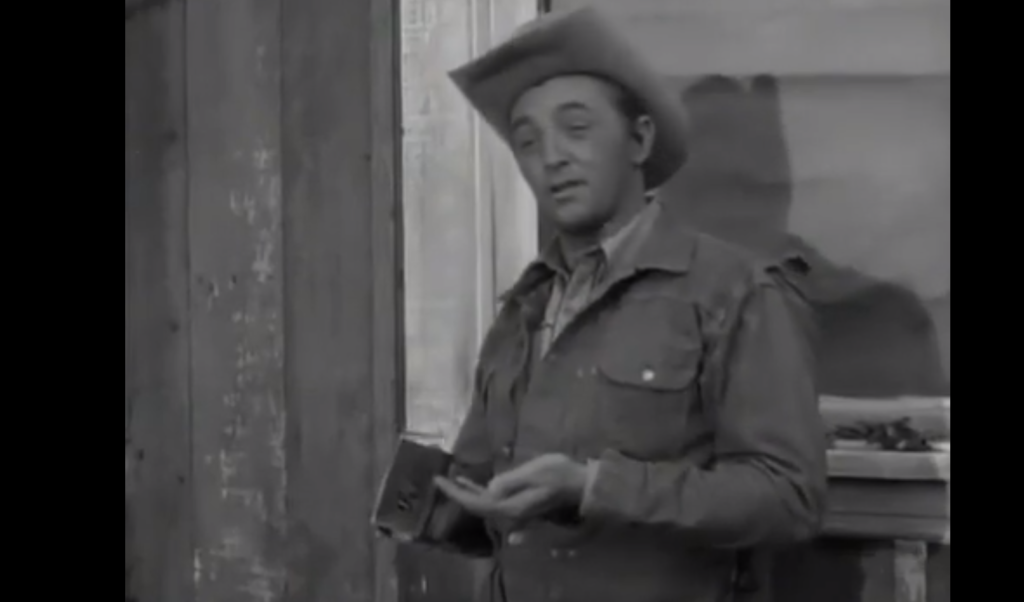
- Susan Hayward as Louise Merritt
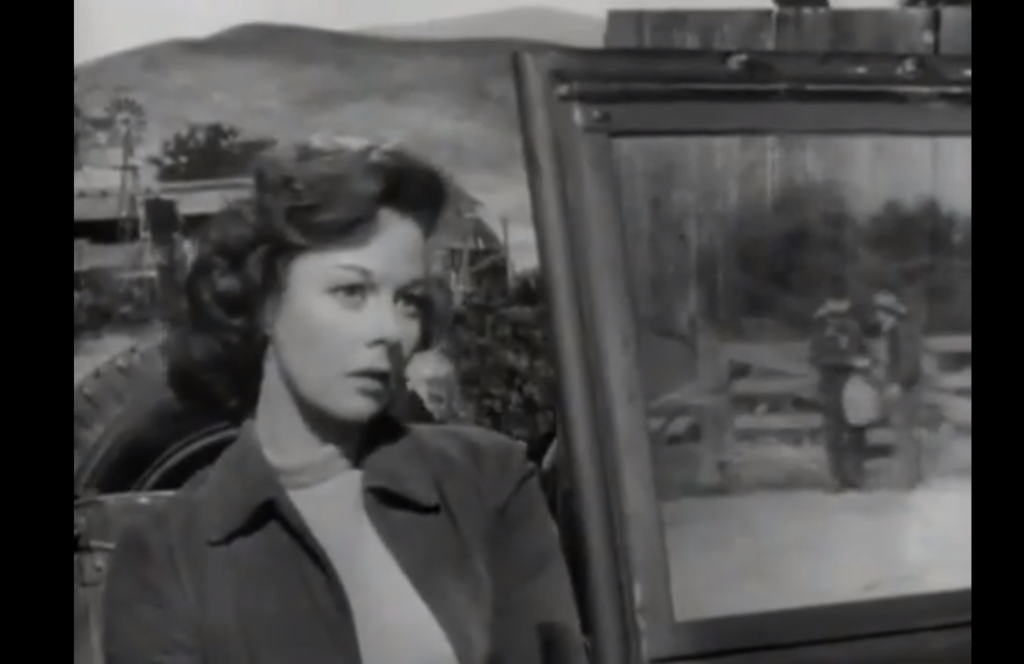
- Lee Garmes’ cinematography
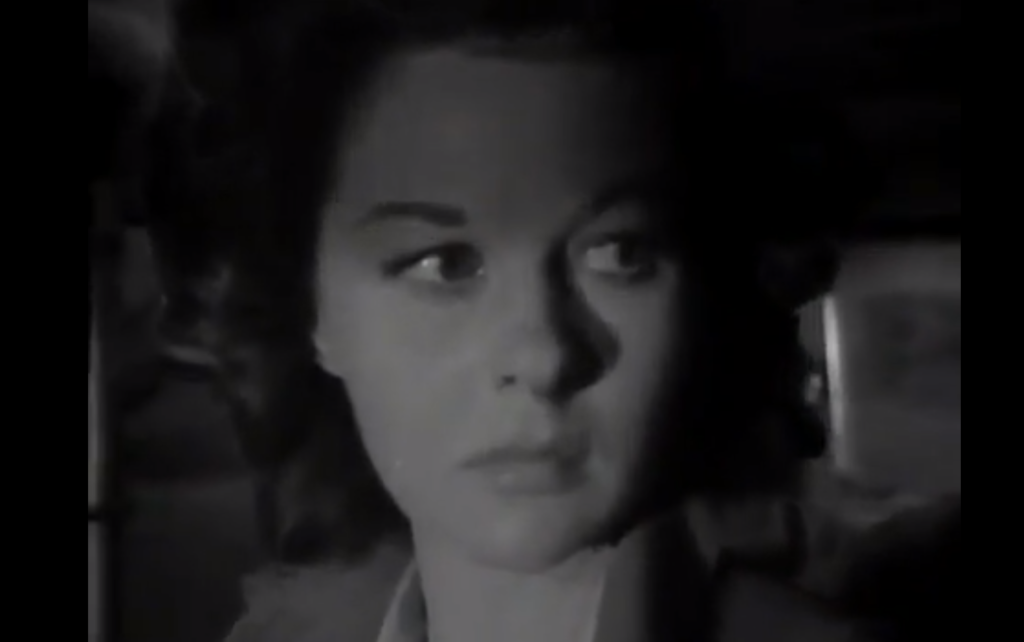
- An almost documentary-like look at rodeo life
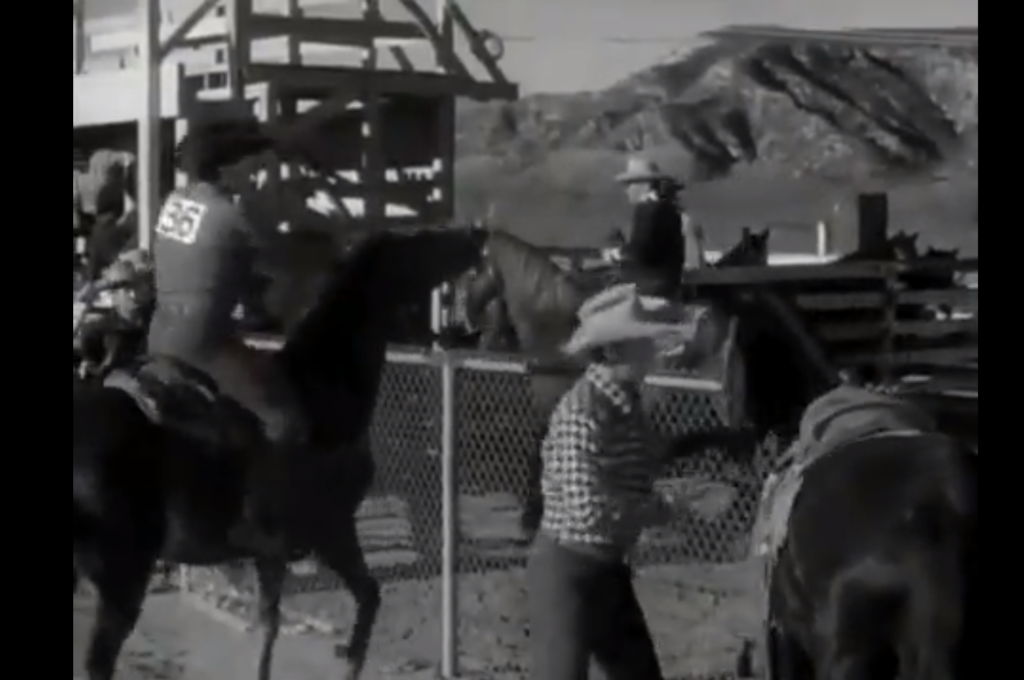
Must See?
No, but it’s recommended for fans of Nicholas Ray and/or Robert Mitchum.
Links:
|
One thought on “Lusty Men, The (1952)”
Very much a must!
This is one excellent film, one that easily gives more on repeat viewings.
To me, ‘TLM’ is equally concerned with the men and the women who love them – both sides get more than equal time. As stated, the film has a semi-documentary approach; the seamless mix of doc and narrative carries a punch. We come to know and feel what it is really like for the men and women of this world to experience it in all its intricacies.
It’s esp. disheartening to see how hard the men work in the different realms of conquest, only to often throw their rewards away quickly on drink, gambling, etc. It’s almost a bizarre representation of pumped-up self-loathing (in the sense of constantly needing to be nothing but ‘the best’).
Co-written by Horace McCoy (author of ‘They Shoot Horses, Don’t They?’) and boldly and effectively photographed by Lee Garmes (‘Morocco’, ‘Shanghai Express’, ‘Nightmare Alley’, among many others), ‘TLM’ also benefits largely from director Ray’s uncanny ability with actors – who clearly benefit from Ray’s emphasis on psychological motivation. (Note one scene in particular, in which Hayward goes to Mitchum in a barn to implore him to discourage Kennedy from taking up the rodeo life; she could very easily have taken a harsher approach here, but Ray has her pull way back – a potentially more effective way for her to get what she wants. Another fave sequence along these lines comes when Frank Faylen enters his trailer – watch his varying facial expressions here as he believes Mitchum is making moves on his wife.)
‘TLM’ is filled with sequences that surprise – often when you least expect them. Thanks for that must ultimately go to the often-razor-sharp script – which is generous enough not only for the leads but for many of its supporting characters.
I find this a compelling film throughout – all the more so considering that it’s a way of life I have practically no interest in.